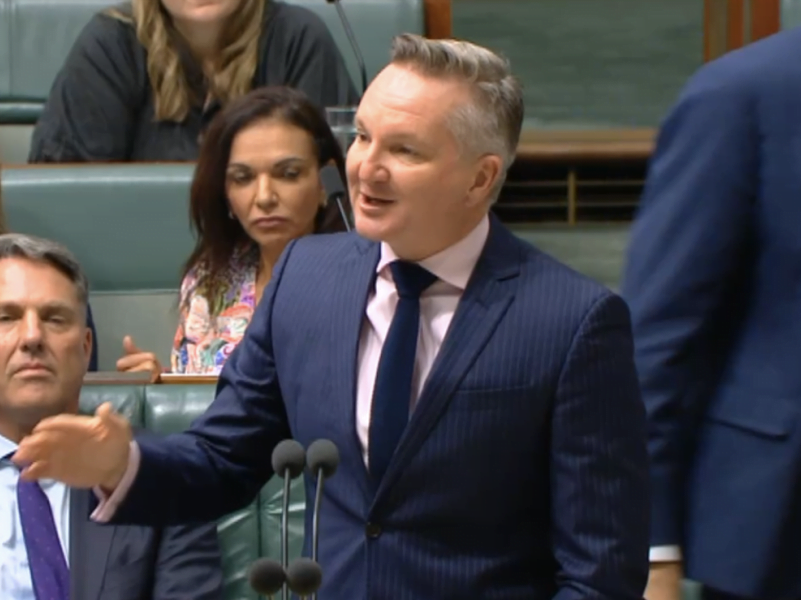Manufacturers and other heavy polluters will face tougher restrictions on their carbon emissions after the government’s reforms to the Safeguard Mechanism passed Parliament.
As implemented by the former Coalition government, the safeguard mechanism sets a baseline level for net greenhouse gas emissions a facility can produce, requiring the purchase of carbon offsets to meet it.
However, the mechanism has so far been broadly ineffective at reducing greenhouse gas emissions.
Passed on Thursday, the bill is set to result in the reduce greenhouse gas emissions by 205 million tonnes. It will also introduce a new carbon credits scheme.
Several substantial amendments were secured by the Greens, including an absolute cap on total emissions that facilities under the safeguard mechanism, equivalent to 140 million tonnes per annum until 2030.
As a part of the deal, $400 million from the Powering the Regions Fund will be committed for “industries providing critical inputs to clean energy industries”, such as steelmaking, cement, and aluminium industries.
The fund will also be prevented from supporting coal or gas projects, while methane and nitrous oxide emissions will also need to be publicly reported.
The changes are expected to come into effect at the beginning of financial year 2023-24.

The addition Powering the Regions commitment is in addition to a $600 million grants program under the fund to help trade exposed facilities covered by the safeguard mechanism decarbonise.
All facilities – including coal and gas projects – that have annual emissions equivalent to 100,000 tonnes of carbon dioxide are subject to the Safeguard Mechanism. As of 2020-21, this included 215 facilities which collectively account for 28 per cent of Australia’s total emissions.
Following the reforms, emissions baselines will decline by 4.9 per cent annually to 2030, with a lower 1.0 per cent rate for hard-to-abate value-added manufacturing industries.
Climate Change and Energy minister Chris Bowen said on Wednesday during parliamentary question time that the passage of the reforms to the safeguard mechanism, in complement with the $15 billion National Reconstruction Fund, represents “a real plan for Australian manufacturing”.
“If the last few years have reminded us of anything, it’s the importance of sovereign capability—the ability of our country to make things and the ability of our country to supply our own needs as much as possible in key strategic industries,” Mr Bowen said.
“That’s also important for our renewable energy transformation. Making the things that make renewable energy is the key to our economic success. That’s the case in particular in relation to aluminium, alumina, steel and cement.”
Mr Bowen highlighted that the reforms have been supported by business groups, including the Business Council of Australia, the Australian Industry Group, ACCI and the Investor Group on Climate Change.
He also referred to comments made by Manufacturing Australia chief executive Ben Eade in October 2021 that “Australia has profound opportunities to create and retain high quality jobs, grow its manufacturing sector and re-shore capabilities lost to imports, through a carefully managed transition to low emissions manufacturing”.
The Greens secured several amendments including the introduction of an absolute cap of 1,233 million tonnes on the total amount of carbon dioxide equivalent emissions that facilities covered by the safeguard mechanism can emit by 2030. This cannot be met using carbon offsets.
Among the Greens amendments is a ‘pollution trigger’ requiring the responsible minister to test the impact of new or expanded projects on the total cap and net carbon budget.
If the project is expected to exceed the cap or net carbon budget, the minister “must consult and recalibrate the rules (such as by limiting [Australian Carbon Credit Units] ACCUs, reducing the value of ACCUs or adjusting the decline rates of baselines)”, according to the Greens.
A suspension on producing Australian Carbon Credit Units from Human Induced Regeneration of forests will also be suspended until an independent audit can be carried out.
The Climate Change Authority will also undertake a review of the use of offsets in 2026-27 and take steps to limit its use if the level of actual emission reductions are not satisfactory.
Greens Leader Adam Bandt said his party estimates the absolute cap on emissions will mean “about half of those 116 new coal and gas projects in the pipeline won’t be able to go ahead”.
The amended bill got through the Senate with support from the Greens, the Jacqui Lambie Network, and Independent Senators David Pocock and Lidia Thorpe.
Shadow minister for climate change and energy Ted O’Brien characterised the reforms as “a carbon tax, a tax that will be imposed on Australian industry, a tax that will be passed through to Australian consumers”.
“We hear from a Labor government that it seeks to spruke credentials about building manufacturing in Australia,But now they introduce a tax on manufacturing,” Mr O’Brien said.
“This is a government that talks about decarbonisation, but in fact introduces a policy of deindustrialisation. This is not a policy to decarbonise the Australian economy, but to decapitate the economy.”
Mr Bandt argued that the measures “take action against coal and gas… because its coal and gas that are causing the climate crisis, not manufacturing, not investment in clean energy”.
“You can back manufacturing [and] tackle coal and gas and that is what we’re seeking,” Mr Bandt said.
Do you know more? Contact James Riley via Email.

